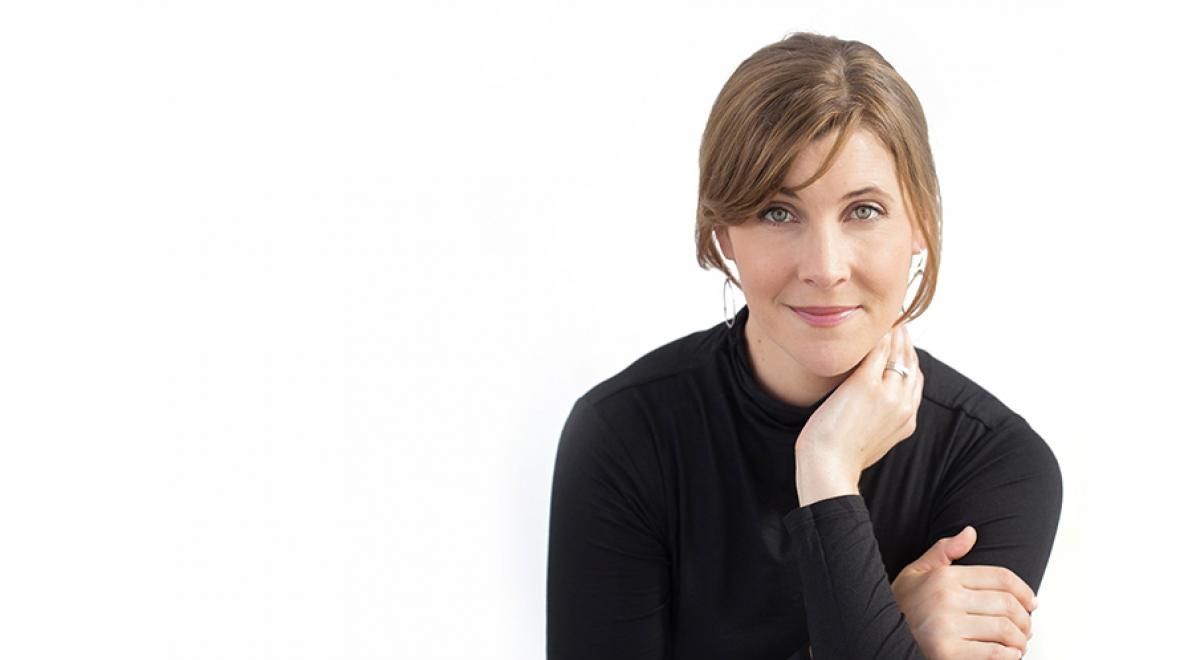
Photo:
The author Bonnie J. Rough. Photo courtesy: Bonnie J. Rough
Bonnie J. Rough didn’t realize how much living in the Netherlands had changed her until she returned to the United States in 2010. Still, it took years of contemplation and research to understand the ease she experienced as a woman and a new mother during her 18 months in Amsterdam.
“I wasn’t an object there. No one cared what I looked like or how I presented my body,” Rough says. “For the first time, I moved through my days with no outside gaze judging me. I wanted that freedom for my own daughters [ages 7 and 11].”
In pursuit of that goal, Rough set out to learn how Dutch families raise children who were so comfortable with their own — and others’ — bodies. The result: “Beyond Birds and Bees: Bringing Home a New Message to Our Kids About Sex, Love and Equality," is an up-close, personal and researched comparison between Dutch and American sex education.
We spoke with Rough in advance of her Town Hall conversation on Sept. 11 with local sexuality educator Amy Lang.
Moderated by Nicole Brodeur of “The Seattle Times,” the event — “Birds, Bees, and #MeToo: Helping Our Kids Build Gender Equality” — is set for 7:30 p.m. at the Phinney Center on Phinney Ridge; tickets cost $5.
What have you noticed when it comes to the way Dutch parents talk to their kids about bodies and sexuality?
They talk about it casually and with intention. They make bodies and sexuality normal … it’s not a joke and it’s not a secret. It comes up in the appropriate context [during daily life].
Now I can say talking about [the human body and sexuality] gets so easy that it can be fun.
For example, when my oldest daughter was 3, I knew repetition was so important. To revisit the words “penis" and “vulva,” we created a game one night that started with questions: What does Mom have? What does Dad have? Soon enough it became: What does Santa Claus have? What does the goldfish have? Pretty soon we were laughing our heads off and the words “penis” and “vulva" got said 50 times in the span of 10 minutes. We all got better at it that night!
In America, we are always gearing up for big birds-and-bees conversations that feel so significant to us. But Dutch parents just know this education is about small conversations repeated over and over until things stick.
I mean, how many times are you going to tell your kids “You need more protein and less sugar?” How many times until they actually hear you and how many times until they actually learn the importance of eating protein and limiting sugar intake? It’s the same with teaching kids about human sexuality.
What surprised you most about observing Dutch kids who are in middle school versus American kids at this age?
What struck me is their independence: They roam around Amsterdam with friends on their own [but with a] childlike zest for life. Going through puberty didn’t seem to make them feel like maybe they needed to change who they were.
They get practice talking [about] bodies and the changes that come with puberty since they start sex education in kindergarten around age 4 … We know now that the best practice for teaching school sex education is to start early — as young as kindergarten or first grade — and to teach both sexes together in the same room so they learn the same information.
The fact is that knowing what everybody else knows and what your common expectations are when it comes to being in relationship levels the playing field. It helps create a more gender equal society.
What do you hope to teach your daughters when it comes to this book?
I noticed [an] absolute comfort while living in Amsterdam because the male gaze isn’t as prevalent [there]. Everywhere I went, I started to carry myself differently: I looked around with my head up and met people’s gaze, eye to eye.
That’s what I want for my daughters: better human relationships because they are at ease and confident with who they are as people.











